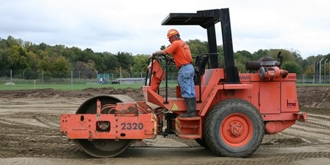Lancaster Trenching - Professional Trenching Solutions in Lancaster, Ohio
Lancaster Trenching - Professional Trenching Solutions in Lancaster, Ohio
Blog Article
Comprehensive Excavation Approaches: Mastering the Fundamentals for Success
The cautious planning, specific implementation, and precise interest to detail needed in excavation jobs require a detailed strategy that includes numerous fundamental elements. The real mastery lies not merely in recognizing these basics yet in seamlessly incorporating them to navigate the complexities of excavation jobs with finesse.
Understanding Excavation Project Preparation

Effective excavation projects are developed on the foundation of precise and thorough preparation. The initial phase of any type of excavation task is the preparation phase, where vital decisions are made that can considerably affect the result of the project. During this phase, it is vital to collect all appropriate information regarding the site, including topographical surveys, dirt make-up, and any type of potential risks that might exist. Comprehending the task range, spending plan, and timeline restrictions is essential for developing an extensive excavation strategy that makes certain the task's success.
One trick facet of excavation job planning is the advancement of an in-depth timeline that details the sequence of target dates, tasks, and landmarks. This timeline functions as a roadmap for the job team, enabling them to track progression and make necessary adjustments to guarantee the project remains on timetable. Furthermore, a distinct budget that makes up all expenditures, including devices rental, labor prices, and materials, is vital for preventing cost overruns and hold-ups. By carefully thinking about all these factors during the drawing board, excavation tasks can be executed efficiently and effectively, resulting in effective end results.
Soil Analysis and Site Assessment
Conducting thorough soil analysis and site analysis is a crucial action in the preparation phase of any type of excavation project. Dirt evaluation involves establishing the structure, framework, and residential or commercial properties of the dirt at the excavation site. This info is critical for understanding the soil's bearing capacity, dampness content, and possibility for disintegration, which are essential aspects in figuring out the excavation techniques and tools needed for the task.
Site analysis surpasses soil evaluation and incorporates a broader analysis of the total website conditions. This analysis includes identifying any type of possible hazards, such as underground utilities, environmental problems, or unsteady terrain, that could impact the excavation procedure. By thoroughly evaluating the website, project managers can develop reliable excavation methods that focus on safety, performance, and environmental protection.
Utilizing sophisticated modern technologies like ground-penetrating radar, dirt tasting, and drone surveys can improve the accuracy and efficiency of soil evaluation and website assessment. Investing time and sources in these preliminary actions can ultimately conserve time and prevent expensive delays or complications during the excavation procedure.
Tools Choice and Utilization
Efficient excavation projects depend heavily on critical tools choice and utilization to make certain optimal performance and performance. Picking the right equipment for the task is crucial in making the most of efficiency and reducing downtime. Factors such as the type of dirt, depth of excavation, and job extent play a substantial duty in figuring out the most appropriate equipment for the job available.

In addition to choosing the ideal devices, correct usage is vital to task success. Operators needs to be educated to handle the tools securely and effectively - lancaster trenching. Normal maintenance checks and timely repair services help avoid malfunctions and guarantee consistent performance throughout the project
Safety Steps and Regulations Conformity
In the realm of excavation jobs, prioritizing precaution and compliance with laws is vital to making sure a safe and secure and legally sound functional environment. Security more info here steps encompass a more helpful hints series of methods, consisting of performing thorough website assessments, executing appropriate signage and obstacles, and providing ample safety and security training for all workers involved in the excavation procedure. Adherence to guidelines, such as OSHA requirements in the United States, makes sure that the excavation project satisfies the needed criteria to secure workers, bystanders, and the surrounding setting.

Surveillance Progress and Adjusting Strategies
How can forecast managers effectively track the advancement of excavation tasks and adjust their strategies appropriately to maximize outcomes? Surveillance progression is vital for making certain that excavation tasks remain on track and satisfy deadlines.

Conclusion
Finally, understanding the fundamentals of comprehensive excavation approaches is important for the success of any kind of task. By understanding job planning, examining dirt and website conditions, choosing ideal devices, abiding by safety and security regulations, and keeping an eye on development, job supervisors can make certain a efficient and smooth excavation process. Carrying out these approaches will certainly cause successful outcomes and decrease prospective dangers or problems throughout the excavation job.
The preliminary stage of any kind of excavation task is the planning stage, where vital choices are made that can substantially influence the outcome of the project. Recognizing the project budget, extent, and timeline constraints is critical for creating a detailed excavation plan that makes certain the job's success.
Exactly how can predict supervisors effectively track the development of excavation projects and adapt their methods accordingly to maximize outcomes? By carefully monitoring development and being eager to adjust approaches, job supervisors can improve the overall success of excavation projects.
By understanding task planning, examining soil and like this website conditions, selecting ideal devices, conforming with safety and security laws, and monitoring progress, project managers can ensure a smooth and effective excavation process.
Report this page